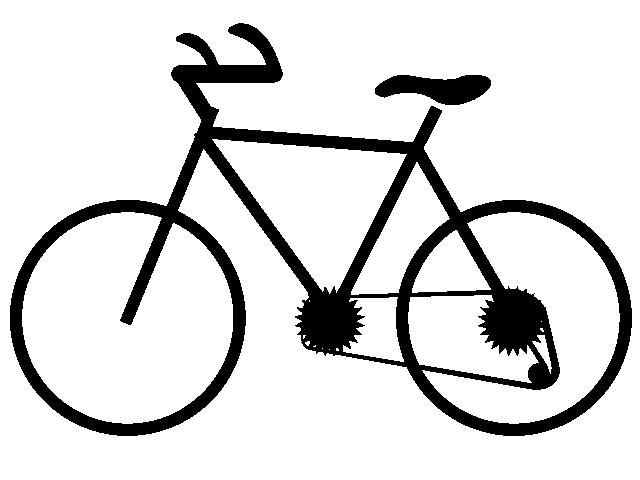 We all know exercise is important; we have heard how important it is all our lives. However, have you really thought about why it is so important? Maybe if we do think about why it is so important, we would be more likely to do it on a consistent basis. If you are like me, I am gung-ho in the beginning and then gradually I find myself making more and more excuses on the days I just don’t feel like doing it. On my journey to “clean out the clutter” of my life, I definitely need to improve in this area. I need to “clean out” about 20 or 25 pounds of fat, as well as the negative body image I have of myself. Most importantly, I need to improve my health, so that I can live a longer, happier life. For about the past 15 years I have tried all kinds of diets and exercise. I can usually take the weight off, but that same 20 pounds or so eventually creeps back on. Now, due to my health problems, I am on medicines that make me fatigued and actually cause me to easily gain more weight. Given this fact, and my age, it’s important now, more than ever, to exercise regularly. I have no problem exercising – I’ve done it all my adult life. My problem is sticking with it for any length of time. I usually end up with one to three weeks where I don’t exercise at all, and then as the guilt finally takes over, I start back up. Or I only manage to get in one or two days on some weeks, which is not a very productive exercise regimen for anyone. So, just why is exercise so important?
We all know exercise is important; we have heard how important it is all our lives. However, have you really thought about why it is so important? Maybe if we do think about why it is so important, we would be more likely to do it on a consistent basis. If you are like me, I am gung-ho in the beginning and then gradually I find myself making more and more excuses on the days I just don’t feel like doing it. On my journey to “clean out the clutter” of my life, I definitely need to improve in this area. I need to “clean out” about 20 or 25 pounds of fat, as well as the negative body image I have of myself. Most importantly, I need to improve my health, so that I can live a longer, happier life. For about the past 15 years I have tried all kinds of diets and exercise. I can usually take the weight off, but that same 20 pounds or so eventually creeps back on. Now, due to my health problems, I am on medicines that make me fatigued and actually cause me to easily gain more weight. Given this fact, and my age, it’s important now, more than ever, to exercise regularly. I have no problem exercising – I’ve done it all my adult life. My problem is sticking with it for any length of time. I usually end up with one to three weeks where I don’t exercise at all, and then as the guilt finally takes over, I start back up. Or I only manage to get in one or two days on some weeks, which is not a very productive exercise regimen for anyone. So, just why is exercise so important?
Exercise Reduces Your Risk for Heart Disease
According to the CDC (Center for Disease Control) reports in 2007, the number one cause for death among White, Black, and Hispanic women is heart disease. It is the number two cause of death for Asian/Pacific Islander and Indian women. For men, it’s the number one cause of death in all the same races except Asian/Pacific Islander, where it is the number two cause of death. Given these startling statistics, alone, should be reason enough to motivate us to reduce our risks for heart disease. As you all know, the way we do that is by eating healthy and exercising – yes, I said, “EXERCISING.”
“Regular activity strengthens your heart muscle; lowers blood pressure; increases “good” cholesterol (high-density lipoproteins or HDLs) and lowers “bad” cholesterol (low-density lipoproteins or LDLs); enhances blood flow; and helps your heart function more efficiently. All of these benefits reduce the risk of stroke, heart disease, and high blood pressure” (Zelman, 2004).
Exercise Reduces Your Risk for Many Chronic Diseases
If heart disease is not enough to get you going, there are many other diseases in which exercise reduces the risk for, or prevents. In some cases, it may help decrease symptoms of the disease. Here are only a few (there are literally hundreds of others):
- Type II Diabetes (can control or prevent)
- High Blood Pressure (can control or prevent)
- Stroke (can prevent)
- Cancer (can prevent or improve symptoms)
- Osteoporosis (can prevent or improve symptoms)
- Parkinson’s Disease (can improve symptoms)
- Multiple Sclerosis (can improve symptoms)
- Rheumatoid Arthritis (can improve symptoms)
- Fibromyalgia (can improve symptoms)
- Depression (can improve symptoms)
I have been diagnosed with sarcoidosis, an autoimmune disease which forms granulomas in the body, and can affect almost any major organ(s) in the body. My disease is currently affecting my eyes and lungs. My pulmonologist told me it was very important to exercise to reduce the progression of the disease in the lungs. Common sense also tells me that if I am fighting to have the best health possible, exercise is going to give me more energy and stamina to fight, not to mention making my lungs stronger.
Exercise Improves Your Stamina
Have you ever noticed how you no longer can do the things you used to do without getting out of breath? I can remember taking the stairs two steps at a time, very fast. Now, there is no way I could even attempt to do that. Well, part of this is aging, but part of it has to do with stamina. For example, going to the grocery store and coming home and unloading all the groceries now fatigues me. However, when I am exercising on a consistent basis, I notice this event not bothering me so much. The more you exercise, the stronger you get. Your body learns to use your energy more efficiently so it requires less energy. It does not take much exercise to begin to see the changes in your overall fitness level. You will notice things that used to get you out of breath, will no longer bother you.
Exercise Helps Control or Reduce Body Weight
Exercising to help control weight or reduce your weight is a “no brainer.” We have all heard it over and over that the best way to maintain or lose weight is to eat a healthy diet and exercise. It is really that simple. Exercise burns calories that you have consumed during exercise and even hours later. Additionally, the muscle you build as a result of exercise requires more energy, so this automatically reduces your metabolism. This means by exercising you reap the benefits long afterward. Weight loss comes from one simple formula – It is when calories in minus calories burned equals a negative result. In other words, if you consume 1500 calories for the day, and you burn 2000 calories, you will have a deficit of 500 calories (-500). Therefore, if you are consistent with exercise, over time, this will show as weight loss on the scale. It takes 3500 calories to equal one pound of body fat. If you reduced your overall calories by 500 a day, it would take 7 days to lose one pound (500 x 7 = 3500). Like I said, it really is that simple.
Exercise Helps to Build and Maintain Muscles, Joints, and Bones
As the saying goes, “what you don’t use…you lose.” It is true – if we don’t exercise, our muscles become smaller and weaker; our joints become less flexible or stiff; and we actually can have bone loss. If you have osteoporosis, this is why it is really important for you to exercise to prevent further bone loss. If you don’t already have it, exercise can help prevent osteoporosis.
Exercise Helps Improve Mental Clarity and Mood
Guess what? When you exercise your body, your brain also benefits.
- When you exercise, it “starts a chain reaction to repair the damage by causing your brain to generate new neurons, especially in the hippocampus-the area in charge of learning and memory. These denser neural connections lead to a measurable increase in brainpower” (Shape Magazine, 2012).
- As we age, we lose neurons, which essentially means our brain ages, as we do. With exercise, you can not only stop the loss of neurons, but “build new neural connections, making your brain operate like one much younger” (Shape Magazine, 2012).
- During moderate to intense exercise, your brain releases what are known as endorphins. Endorphins are endogenous opioid polypeptides produced by the pituitary gland and hypothalamus. Once these endorphins are produced, they are distributed throughout the body’s central nervous system, where they interact with the opiate receptors, decreasing the body’s perception of pain and causing a state of euphoria. By the way, these same endorphins are released during a sexual orgasmic episode. This explains why after an intense workout, people report feeling so good. It is not only because they are proud of themselves for working out, but they physically have an increased sense of well-being. This is also why it’s important for people suffering from depression to make sure they exercise on a regular basis.
Summary
- Exercise decreases your risk for and/or reduces the symptoms of hundreds of diseases.
- Exercise improves stamina by using your body’s energy more efficiently.
- Exercise helps control or reduces body weight by burning more calories during exercise and while at rest.
- Exercise helps to build and maintain muscle, joints, and bones by increasing muscle mass, making our joints more flexible, and increasing bone density…especially important for prevention or slowing of progression of osteoporosis.
- Exercise helps improve mental clarity and enhances mood by repairing the brain, reducing or reversing the aging process, and releasing pain reducing, mood altering endorphins.
With all these positive things that happen to your body when you exercise, we should all look at exercise as not a choice, but a reality that HAS to happen if we are to live our best life possible now, and into the future. One thing is for sure…we will all die some time in our life, but HOW and WHEN we die, are two things we can possibly control by taking better care of our bodies through exercise.
References
Zelman, K. (2004). Benefits of Exercising. Retrieved May 30, 2012 from: http://www.medicinenet.com/benefits_of_exercise/article.htm
ScienceDaily. (2008). Exercise and Rest Reduce Cancer Risk. Retrieved May 30, 2012 from: http://www.sciencedaily.com/releases/2008/11/081117153154.htm
Shape Magazine (2012). What Happens to Your Brain When You Exercise? Retrieved May 31, 2012 from: http://shine.yahoo.com/healthy-living/happens-brain-exercise-171100749.html
Quinn, E. (2009). What Are Endorphins? Retrieved May 21, 2012 from http://sportsmedicine.about.com/od/glossary/g/Endorphins.htm
Next Health Tip: Cheese-Nutritious or Bad For Us?
Google+





{ 2 comments… read them below or add one }
I like your fantastic web site. Just what I was searching for!
Best regards, Ron
My Fitness Tips blog http://www.intervalstraining.net
Thank you so much. I’ll check out your site, as well.